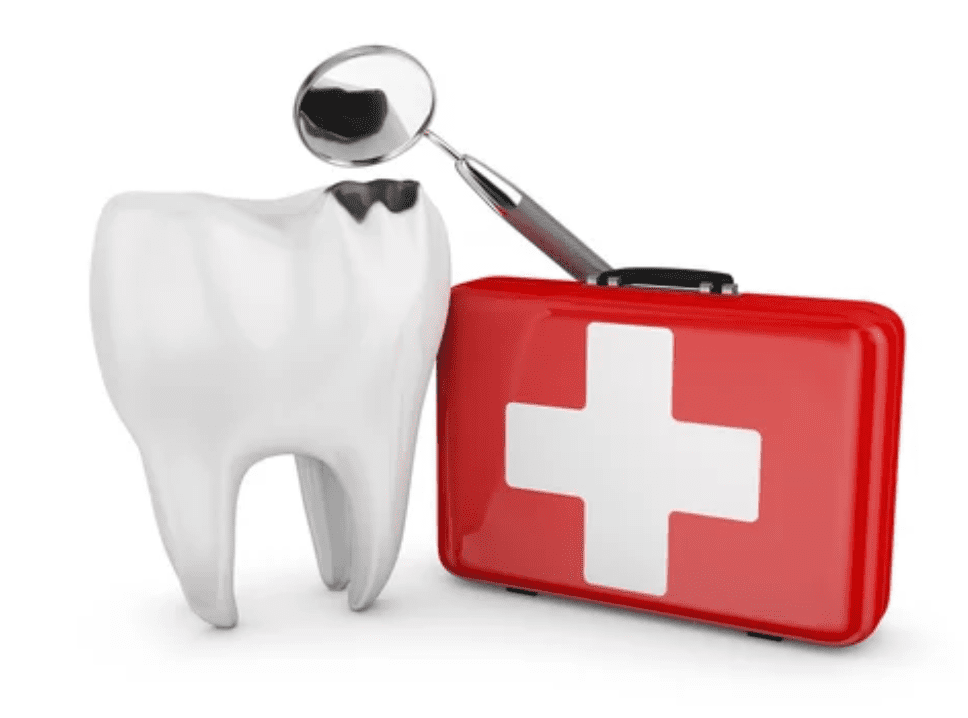A broken tooth can happen to anyone at any time. You could be enjoying an almond snack or a crunchy dessert when you feel it happen. In fact, you might be watching your kid’s soccer practice when a stray ball hits your face. Some foods and dental trauma can break a tooth. While it can be distressing, try not to worry. Assess the damage and see if you need to call your dentist.

Understanding the Urgency
Not every broken or fractured tooth is a dental emergency. If you have a minor chip or crack, it may not be an emergency. Without severe pain or sensitivity, it should be safe to make an appointment with your dentist without urgency. However, you still need to call your dentist to make sure.
You should start to worry if you have a significant portion of your breaks off. Additionally, pain or sensitivity can indicate that you have a more urgent issue. If that is the case, you should contact your dentist to discuss what you may need.
A cause for immediate dental care is a severe break or a knocked-out tooth. If most or all of your tooth comes out, you should seek emergency dental care as soon as possible. This will increase your chances of saving your tooth.
Taking Action
In the case of a dental emergency, there are several things you can do to avoid major damage. First, gently rinse your mouth with warm water to remove any blood or debris. With this out of the way, you can evaluate your injury to see if you need immediate attention. Also, removing blood and debris can reduce your risk of infection.
If the blood continues, apply gentle pressure with a clean piece of gauze. You can find this in most emergency kits. Keep pressure on the area until it stops bleeding or when you get to the dentist. Don’t remove the gauze because it can damage the blood clot.
To reduce pain and swelling, use a cold compress or an ice pack. You can place this outside of the affected area. You may also consider using pain relievers like ibuprofen to reduce pain and inflammation.
If you can find your tooth, you can preserve it. Place the tooth (or piece of a tooth) in a container with either milk or your own saliva. This can keep it moist and increase your chances of saving the tooth.
Safeguarding Your Smile
You can try to avoid dental emergencies altogether. One way to do this is to have regular visits to your dentist. They will be able to identify any issues and address them before they become emergencies.
When playing sports, you should always wear a mouthguard to protect your teeth. A mouthguard provides a cushion around your teeth that can minimize damage from injury. You may even consider a mouthguard if you grind your teeth at night. Teeth grinding can damage your enamel and increase your risk of a broken tooth.
Finally, you should avoid using your teeth as tools or chewing on hard objects.
